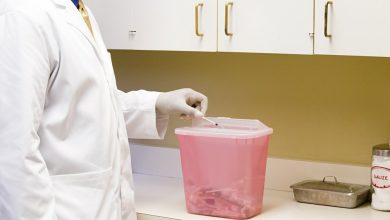The Role of a Fertility Specialist in Helping Couples Conceive

Infertility can be a challenging and emotional experience for couples who are trying to conceive. Thankfully, there are fertility specialists like Dr Anthony Marren who can help you overcome infertility and achieve your dream of starting a family. Based in Sydney, Australia, Dr Marren has over 20 years of experience in reproductive medicine. All aspects of infertility, including male infertility, ovulation disorders, and endometriosis, are specialised under expert supervision.
Infertility affects millions of couples worldwide, and working with a fertility specialist who can help diagnose and treat the underlying causes is essential. This article explores a fertility specialist’s role in helping couples conceive, including initial consultation, diagnostic testing, and treatment options.
Table of Contents
Initial Consultation
The first step in working with a fertility specialist is an initial consultation. During this appointment, the specialist will review the couple’s medical history, including any previous attempts at conception, medical conditions, and medications. The fertility specialist will also ask about lifestyle factors such as smoking, alcohol consumption, and exercise habits.
Diagnostic Testing
Once the fertility specialist understands the couple’s medical history and lifestyle factors, they will order diagnostic testing to identify any underlying causes of infertility. These tests may include semen analysis to assess male fertility, blood work to evaluate hormone levels, and imaging tests such as ultrasound to examine the reproductive organs.
The fertility specialist may sometimes recommend more invasive testing, such as laparoscopy or hysteroscopy, to examine the uterus and fallopian tubes for blockages or other issues.
Treatment Options
Once the fertility specialist has identified the underlying causes of infertility, they will develop a treatment plan tailored to the couple’s needs. Treatment options may include:
Medications: Fertility medications such as Clomid or Letrozole can help regulate ovulation in irregular-cycle women. In men, medications can help improve sperm count and motility.
Intrauterine Insemination (IUI): IUI involves inserting sperm directly into the uterus to increase the chances of fertilisation.
In Vitro Fertilisation (IVF): IVF is a more invasive option that involves fertilising eggs outside the body and transferring them into the uterus.
Donor Sperm or Eggs: In some cases, the fertility specialist may recommend using donor sperm or eggs to increase the chances of conception.
Surrogacy: For couples with severe infertility issues, surrogacy may be an option. This involves using a surrogate mother to carry the baby to term.
Support Throughout the Process
Working with a fertility specialist can be an emotional and challenging process. Infertility can cause stress, anxiety, and depression, and support is essential throughout the process. A good fertility specialist will provide emotional support and guidance throughout the treatment process, helping couples navigate the challenges and uncertainties of fertility treatment.
Conclusion
From the initial consultation to diagnostic testing and treatment options, a fertility specialist is crucial in helping couples start a family. You can find great care with specialists like Dr Anthony Marren, who can help couples with their compassionate and supportive approach. Dr Marren is committed to providing personalised care, taking the time to understand the patient’s unique needs and developing a treatment plan tailored to their specific situation.
Working with a fertility specialist can help diagnose and treat the underlying causes of infertility, improving the chances of conception. With personalised care and emotional support, couples can navigate the challenges of fertility treatment and achieve a successful pregnancy.
Visit for more articles: todaytime.org




